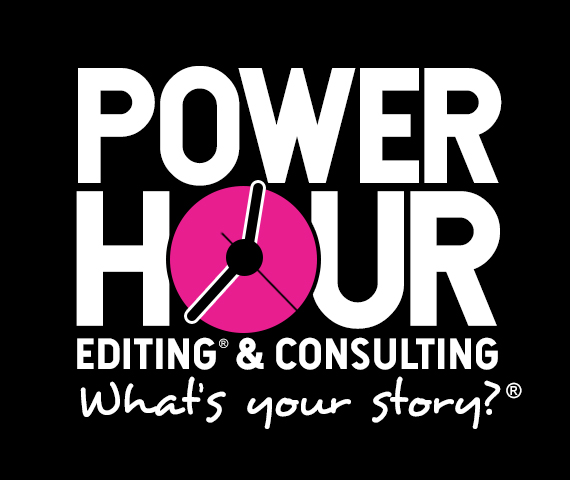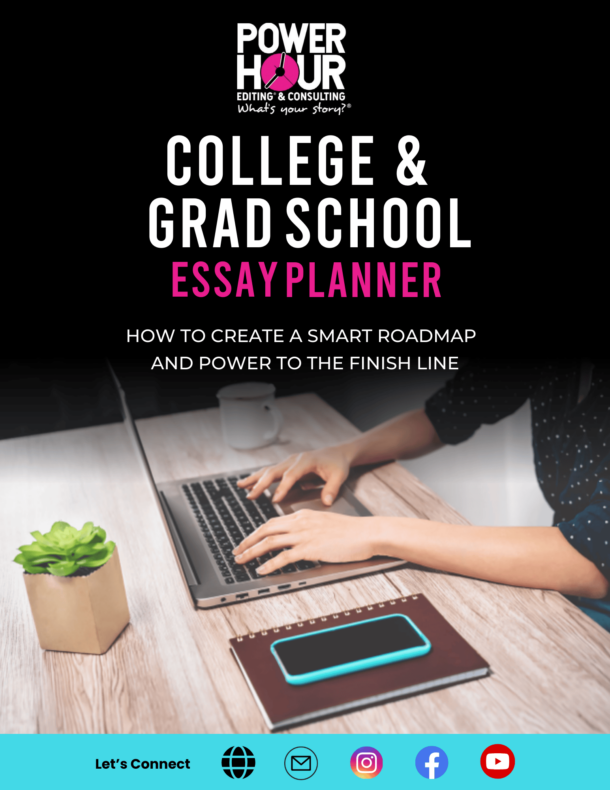Early in my career, I led a “Business Writers Group” where I brought monthly speakers to inspire local writers. One week, we started talking about books and how to develop ideas that would be marketable. Members were scared to share their ideas, and I’ll never forget what one man told us. I really wish I could remember his name because attribution is REALLY important to journalists, but I’ll never forget what he told us. “An idea is just an idea. If I asked you to write a book about a Danish prince, could you deliver Hamlet?” I use this example in my classes because it’s so relevant to college essays. If we each wrote a story about a Danish prince, I can guarantee you our stories would be different. They’d each have the signature mark of US. Our experiences. Our reflections. Our anecdotes. Our creative support.
I’m often asked if any subjects are off-limits. We do hear that topics like the “3 D’s” (death, depression, divorce), along with sports and camp (and now COVID), should be treated carefully. Why?
- COVID? That’s easy, because there’s a separate question for that. Use it if you need it! Or add a few sentences to your main essay that were inspired (good or bad) by COVID, but most likely, it’s not your ENTIRE story.
- Sports? There are 8 million high school athletes, so if every essay is about a common sports theme (Friday Night Lights, scoring a lot of goals, etc.), it’s not all that unique or interesting. Maybe YOUR story is about a special motto that you learned through sports that you then applied to other areas of your life? Now we’re getting interesting!
- Camp? Millions of kids go to camp, according to the American Camp Association, so if your essay is about being homesick and living in a bunk, it may not be that unique or exciting. But if it’s about escaping a Category 2 hurricane, evacuating a 1,600-person camp, and having your leadership skills tested by 9-year-old campers, you’ve got a story! (actual example – approved to share by student).
- Those 3 D’s? unfortunately, are prevalent in the teenage population, so your angle needs to be very specific to YOU. I remember a Vanderbilt admissions tour where the representative shared a favorite essay about an applicant buying her first bra at Walmart with her grandfather. Why? Her mother had passed away, which was undoubtedly painful, but her story wasn’t just about the loss. It was about finding new, special people to celebrate milestone firsts with.
Here’s my advice, backed by TONS of successful essays on each and every one of these topics (except COVID). I don’t believe ANY topic is off-limits, including all mentioned here. What I think SHOULD be avoided is common, boring, any teen could write it stuff. Think about your best idea and personalize it with lots and lots of YOU! That’s what makes an idea really shine. The simplest ideas often turn into the most creative stories. I’ve seen students write about fishing, hot tea, shoes (all kinds!), a lucky charm, a saying that informed direction, an adventure that led to reflection and action, a failure that contributed to aha moments and growth, a surprising discovery, and so much more! Plus, simple is what turned one writer’s story about a Danish prince into Hamlet. (By the way, Hamlet has been translated into 75 languages, and more than 4 million copies of Shakespeare’s masterpiece have been sold).
What’s YOUR idea? What’s YOUR story?


